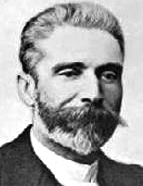

Little or nothing is known about Basílio Teles’ family and social origins. He attended Porto National High School (LNP, 1868 - ?), Porto Polytechnic Academy (APP), and then the School of Surgical Medicine (EMC, 1874-1879). Following a disagreement in the final year with one of the lecturers, Urbino de Freitas, he did not complete the medical course. After taking part in the failed revolt on 31 January 1891, he lived in exile in Galicia and Madrid, in the company of Sampaio Bruno. He also spent some time in Brazil (Rio Grande do Sul), from where he returned in 1896. In the 1880s he gave classes in literature, philosophy and natural sciences at the Porto Academic School (EAP). Throughout his professional life he worked essentially as a publicist. He never occupied any public position, nor was he ever employed by private companies. Republican with a revolutionary vein, he belonged to the Northern Democratic Propaganda Club (CPDN), and was secretary of the ephemeral Northern Patriotic League (LPN, 1890). He was also a member of the Directorate of the Portuguese Republican Party (PRP) in 1897-98. He sporadically wrote articles for a number of publications, including among others: O Debate (1911-1912); A Pátria (1910-1911); A Alma Nacional (1910); A Luta (1907-1908); A Voz Pública (1899, 1905, 1907); República Portuguesa (1890); Revista de Estudos Livres (1884, under the pseudonym Silva Teles); and Pantheon (1880, also as Silva Teles). He was around forty-three when he published O problema agrícola (crédito e imposto) (The agricultural problem [credit and tax], 1899) – the first of a set of studies on the Portuguese social situation.
Teles’ writings reveal the influence of the main currents of thought of his time: Comte and Spencer’s positivism governed his conception – which was a biological one – of society, the idea of the primacy of reason, the belief in science and the notion of progress (seen as the continuous, inexorable march of events). The stamps of determinism/evolutionism are present in his adherence to the “law of the strongest” and in his idea of race and the ethnic differentiation of peoples. In his works there is also a clear sense of pessimism – which he shared with a substantial number of Portuguese intellectuals of the late 19th century – in the face of what he saw as the symptoms of his homeland’s decadence and the weakness of the character of the Portuguese people.
